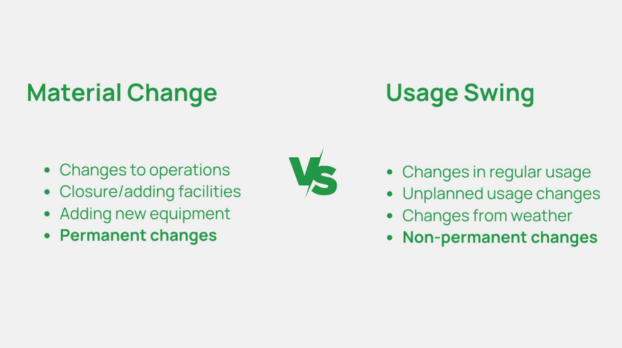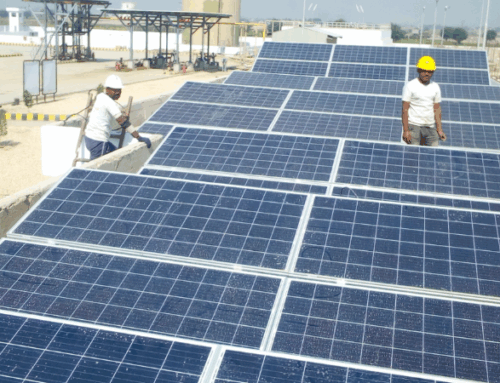Fixed-rate energy contracts have very detailed energy contract language. Because retail energy suppliers are pre-purchasing energy on the customer’s behalf in order to fulfill the fixed rate, their contract pertains to certain provisions to protect them from any losses. A material change clause in an energy contract is one of these provisions. This article aims to outline material change contract language and how to avoid penalties from your retail energy supplier.
What Is A Material Change Contract Provision?
A material change provision typically allows energy suppliers to pass-through additional costs to the customer if a permanent change occurs during an agreement. Any changes to the customer’s facility that affect the total amount of energy consumed are typically covered under this contract clause. This protects the supplier from incurring any costs or losses as a result of the customer making major changes to his/her facility. As a customer, it is important to understand the details of any material change clauses in a contract prior to signing. If you are planning to make major changes to your facility, such as an addition that would create more energy usage, you should discuss these changes first with the supplier prior to signing the contract.
What Are Some Examples Of A Material Change?
Any permanent change to a business’s operation or facility that has an impact on energy usage is usually determined to be a material change. Here are some examples of situations that would constitute a material change:
- A manufacturer adding or taking away a second or third shift
- A business expanding its facility with an addition or added square footage
- Any planned outage or closure of a facility
- Equipment replacement, modification, or addition/subtraction
All of these examples above have a direct impact on energy usage. Whether there is an increase or decrease in usage due, the change affects the customer’s total energy consumption and could trigger the supplier to enact a material change contract clause.
Material Change vs. Usage Swing

There is a big difference between a material change clause and a bandwidth clause, or usage swing clause. Material changes refer to any permanent, or long-term decisions made by a customer that affect a building’s overall energy consumption. As outlined above, these changes are consciously made and can be planned ahead of time.
Usage swing, on the other hand, is a variance in energy consumption due to the normal, day-to-day operation of a facility. Usage swing is not planned but simply occurs due to the way equipment is running, weather, and other factors affecting energy consumption. Some suppliers also have a usage swing, or bandwidth clause in their fixed-rate contracts that penalize customers for using too much or too little energy.
Understanding Material Change Language In Your Contract
It is always best to consult an attorney before signing any legal contract. Understanding a material change clause can be complex and confusing for most business owners, particularly because each energy supplier defines material changes differently. If you need help deciphering your energy contract language, it’s best to hire an energy broker who can negotiate with energy suppliers on your behalf. Sometimes these clauses can be eliminated altogether under the right circumstances.
Need Help Negotiating Your Contract?
Our team of expert energy brokers negotiates energy supply contracts on a daily basis for our commercial and industrial customers. In addition, we have in-house legal counsel to help our customers structure the right energy contracts for their business operations. Contact our team today to get help negotiating your next energy contract.



